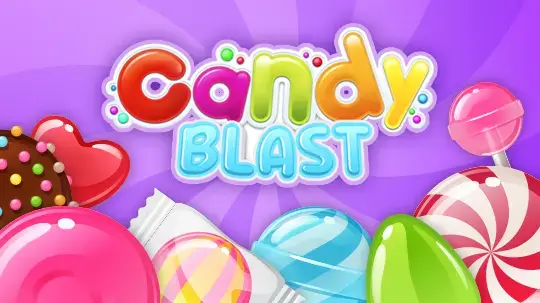โมเลกุลน้ำมีขนาดเท่ากันหมดหรือเปล่า?

Are All Water Molecules Created Equal?

In the old days, scientific terms like "atoms" and "molecules" only existed in chemistry classes, where students learned and memorized their definitions for the exams, only never to hear of them again after they graduated. Nowadays, however, these words have been incorporated into some advertisements, claiming that their products contain or produce "smaller molecules" that would be more advantageous for its consumers. Examples that some of you may have already seen are "smaller water molecules" from bottled water or certain water-filtering systems, which will be better absorbed by our bodies.How accurate are these claims? In this issue, we will re-visit our chemistry textbook once more so that we don't become prey to the advertisement industry.
By definition, atoms are the smallest units that retain the properties of any element. The word ‘atom' comes from the Greek word ‘atomos', which means something that cannot be divided further. Therefore, the name of each atom would be the same as the name of each chemical element in the periodic table, such as hydrogen atom (H), oxygen atom (O), and carbon atom (C). When two or more atoms are combined together and connected via a chemical bond, it forms a molecule, which is the smallest particle of a substance that retains its unique physical and chemical properties.
In this case, all water molecules are composed of two atoms of hydrogen and one atom of oxygen, in accordance with the chemical formula H2O. Therefore, a water molecule is already in its smallest size possible without breaking apart into hydrogen and oxygen atoms. Accordingly, the water molecule exists in only one size, regardless of how the water is being treated.
Based on these definitions, any advertisement claiming that its products contain smaller water molecules is, by definition, false. All water molecules are created equal, and anything smaller would not retain the same chemical and physical properties (in another words, would not be water). So, as you can see, science is no longer important only in school, but is also important as an essential tool to help you avoid becoming prey to these advertisements.
โมเลกุลน้ำมีขนาดเท่ากันหมดหรือเปล่า?
ในสมัยก่อน คำศัพท์ทางวิทยาศาสตร์ เช่น "อะตอม" หรือ "โมเลกุล" นั้นพบได้แต่ในห้องเรียนวิชาเคมี ซึ่งนักเรียนต้องศึกษาและจดจำความหมายของศัพท์เหล่านี้เพื่อทำข้อสอบ เพียงเพื่อที่จะไม่ได้ยินถึงคำเหล่านี้อีกหลังจากที่จบการศึกษาไป อย่างไรก็ตามในปัจจุบันคำศัพท์เหล่านี้ถูกนำมาใช้ในการโฆษณาบางชิ้น โดยอ้างว่าผลิตภัณฑ์เหล่านั้นมี หรือสามารถผลิต "โมเลกุลขนาดเล็ก" ซึ่งจะมีประโยชน์ต่อผู้บริโภคมากขึ้น ตัวอย่างผลิตภัณฑ์ที่บางท่านอาจจะเคยเห็นได้แก่ "น้ำโมเลกุลเล็ก" จากน้ำดื่มบรรจุขวด หรือ ระบบเครื่องกรองน้ำ ซึ่งจะทำให้ร่างกายดูดซึมได้ดีขึ้น คำโฆษณาเหล่านี้ถูกต้องแค่ไหนกันนะ? ในฉบับนี้ เราจะกลับไปศึกษาตำราเคมีอีกครั้งเพื่อที่เราจะได้ไม่เป็นเหยื่อของวงการโฆษณาค่ะ
ตามคำจำกัดความแล้ว อะตอมคือหน่วยที่เล็กที่สุดที่รักษาคุณสมบัติของธาตุ คำว่าอะตอมนั้นมาจากคำในภาษากรีกว่า "อะตอมโมส" ซึ่งหมายถึงสิ่งที่ไม่สามารถถูกแบ่งออกได้อีก ดังนั้น ชื่อของแต่ละอะตอมก็จะเหมือนกับชื่อของธาตุทางเคมีที่พบไดในตารางธาตุ เช่น อะตอมไฮโดรเจน (H) อะตอมออกซิเจน (O) และ อะตอมคาร์บอน (C) เมื่ออะตอมอย่างน้อยสองอะตอม มารวมกันและเชื่อมต่อกันโดยพันธะทางเคมี มันจะสร้างโมเลกุล ซึ่งก็คืออนุภาคที่เล็กที่สุดของสสารที่ยังรักษาคุณสมบัติทางกายภาพและทางเคมีที่จำเพาะ
ในกรณีนี้ โมเลกุลน้ำทุกอันจะประกอบด้วยอะตอมของไฮโดรเจนสองอัน และอะตอมออกซิเจน หนึ่งอัน ทำให้เกิดเป็นสูตรทางเคมี คือ H2O ดังนั้นโมเลกุลของน้ำจึงอยู่ในขนาดที่เล็กที่สุดที่เป็นไปได้อยู่แล้ว โดยที่ไม่โดนแบ่งออกเป็นอะตอมของไฮโดรเจนหรือออกซิเจน ซึ่งหมายความว่า โมเลกุลของน้ำจึงมีได้เพียงขนาดเดียว ไม่ว่ามันจะถูกผ่านกระบวนการอะไรก็ตาม
เมื่ออ้างอิงจากความหมายของคำศัพท์เหล่านี้โฆษณาใดก็ตามที่อ้างว่าผลิตภัณฑ์ของเขามีน้ำโมเลกุลขนาดเล็ก จึงถือว่า เป็นข้ออ้างที่ผิด โมเลกุลของน้ำทุกโมเลกุลถูกสร้างขึ้นให้มีขนาดเท่ากัน และสิ่งที่เล็กกว่านี้ก็จะไม่สามารถรักษาคุณสมบัติทางเคมีและทางกายภาพได้ (หรืออีกนัยหนึ่งคือ ไม่ใช่น้ำอีกต่อไป) คุณจึงเห็นได้ว่า วิทยาศาสตร์นั้นไม่ได้มีความสำคัญอยู่ในแค่โรงเรียนเท่านั้น แต่ยังเป็นเครื่องมือที่สำคัญที่ทำให้คุณไม่ให้ตกเป็นเหยื่อของโฆษณาเหล่านี้ค่ะ
Vocabulary
memorize (v.) เม็มโมไรซ์ จดจำ
graduate (v.) แกรดูเอท จบการศึกษา
element (n.) อิลิเมนท์ ธาตุ
periodic table (n.) พีริโอดิก เทเบิล ตารางธาตุ
particle (n.) พาร์ทิเคิล อนุภาค
property (n.) พรอพเพอร์ที คุณสมบัติ
คอลัมน์ Science Zone
ผู้เขียน วนนิตย์ (I Get English Magazine)
 ปฏิทิน 2567
ปฏิทิน 2567




